
Good Moo-rning Legends 💁♂️📚
No DOGE updates? Feels weird man. Like when you finally submit an assignment and instantly forget what you did with your life before it existed.
Speaking of lost, how are we already drowning in deadlines and it’s only week 4? Thank the heavens for Canberra Day, though honestly, a Canberra Week wouldn’t hurt.
Until then, here’s what’s happening in the markets. 🚀
Markets (USD) - Weekly
NASDAQ | 18,196.22 | -3.84% |
S&P 500 | 5,770.20 | -3.32% |
D-JIA | 42,801.72 | -2.50% |
2-Year Yield | 4.002% | -0.50bps |
10-Year Yield | 4.301% | +8.10bps |
Bitcoin | $85,933.94 | +0.61% |
Mixue Group | HK$ 355.00 | +75.31% |
March 3
Make Mixue, Make Me Hotter

Image source: Wikipedia Commons
Move over, McDonald’s—there’s a new king of global fast food, and it sells ice cream for under a buck. Mixue (pronounced Me-schway), China’s budget-friendly sweet treat giant, has officially become the world’s largest food and bevy chain by location, boasting 45,000 stores—3,000 more than the Golden Arches.
Investors were eager to get a taste on Monday with Mixue’s Hong Kong IPO1 shares opened at HK$202.5 and closed over HK$290, a 43% jump. The offering was 5,000 times oversubscribed2, selling 17.06 million shares and raising HK$3.45 billion. The demand was so intense that investors sought HK$1.8 trillion (US$232 billion) in margin loans3, forcing underwriters4 to shut down orders a day early.
The company’s IPO filing confirmed aims for global domination (in the food industry) but it seems a US entry, currently, is unlikely. Though, there is one on George St. in Sydney.
March 6
Walgreens Takes Its Final Dose
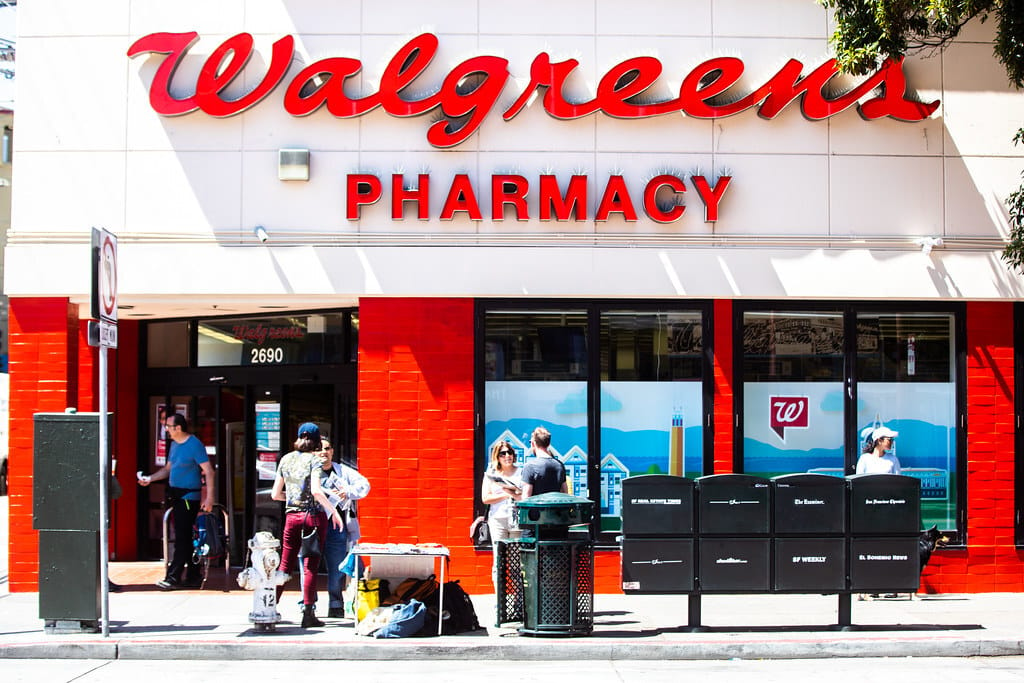
Image Source: Flickr
Walgreens is calling it quits! Private equity5 firm Sycamore Partners is scooping up the leftovers in a $24 billion buyout, taking Walgreens private in one of the largest leveraged buyouts6 in the past decade. The deal, expected to close in late 2025, will give existing shareholders $11.45 per share in cash (a 29% premium over last year’s price) with a potential $3 per share bonus if Walgreens is able to sell-off its primary-care assets.
Prior to landing in the PE recycling bin, Walgreens tried it all: A pivot into primary-care clinics (didn’t work), closing down 1200 stores for cost-cutting (didn’t work), cutting its long-standing dividend (didn’t work).
Now, Sycamore is stepping in, likely planning to do what PE does best—chopping up divisions, restructuring finances, and selling off underperforming assets. But reviving Walgreens won’t be easy. The company is dragging along $9 billion in debt, along with billions in opioid lawsuit settlements after being accused of oversupplying prescription painkillers. Worst of all, Walgreens faces the existential crisis of being a standalone retail pharmacy relic in 2025.
March 4
TSMC’s Journey To The West X2
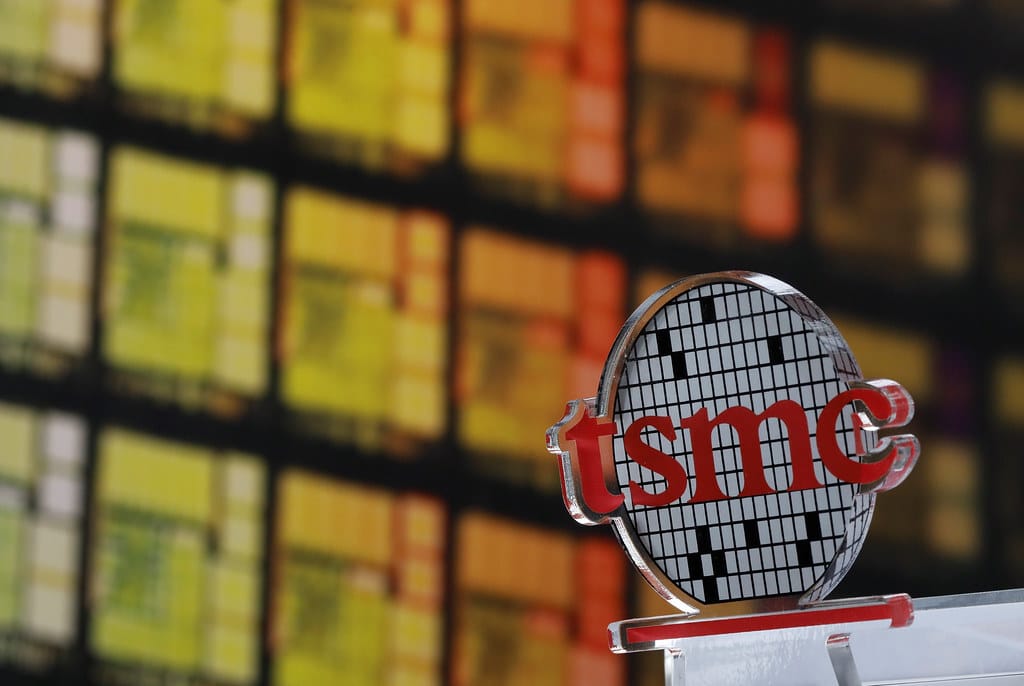
Image Source: Flickr
Taiwan Semiconductor Manufacturing Co. (TSMC), the world’s largest contract chipmaker, and Nvidia’s best friend, has announced a $100 billion investment to expand its U.S. operations. This plan includes building three new plants, two packing facilities, and a research and development center in Arizona. Moreover, this is on top of the $65 billion already pledged under the Biden administration.
Given Trump’s ‘Make-in-America’ mandate7, and the threat of a 100 percent tariff on Taiwan semiconductor imports, everyone suspected that this move is less about business and more about political pressure. However, TSMC’s leadership insists it’s all about supply and demand. CEO C.C. Wei states that this decision was driven solely by U.S. customers needing more chips. In fact, he revealed that TSMC’s production lines had already been fully booked for the next two years, making this expansion necessary.
Taiwan’s President Lai Ching-te echoed the same sentiment, calling the investment a “historic moment” for Taiwan-U.S. relations while denying any government pressure (chat, isn’t this an oxymoron?).
Fully political, partially political, purely business, we may never know. However, one thing is certain: America just got a larger slice of the chip-making pie.
March 4
BlackRock “Takes it Back”
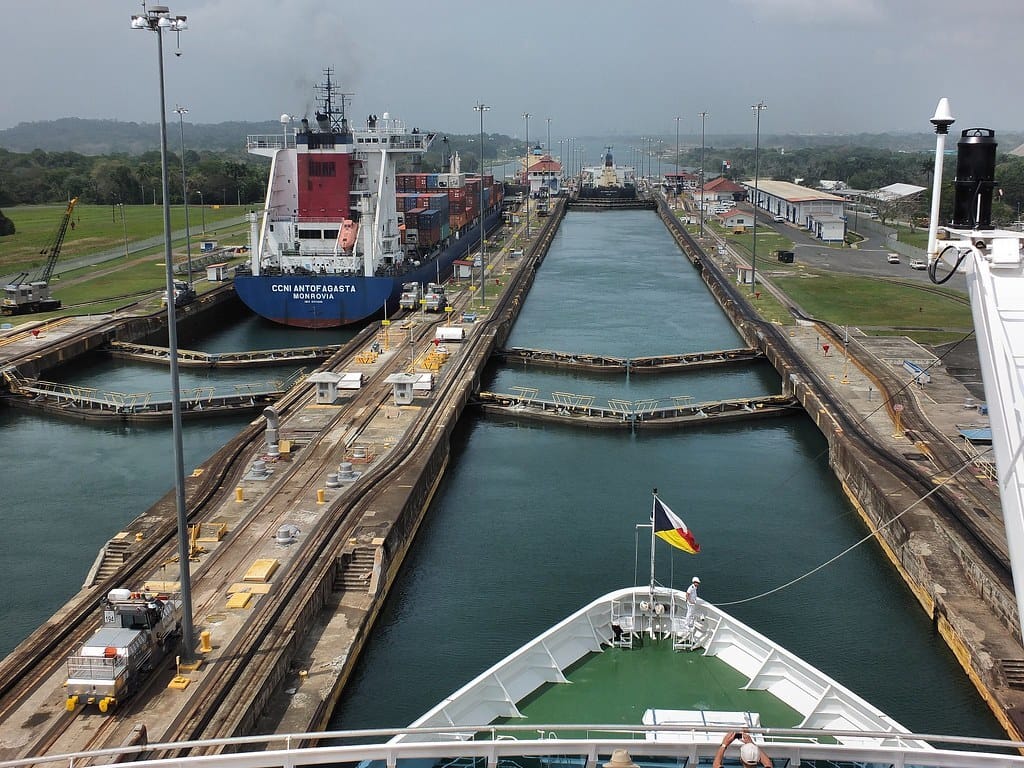
Image source: Flickr
BlackRock, the world’s largest asset manager, just secured another asset—two key ports at the Panama Canal. A consortium led by the firm has agreed to buy the ports from Hong Kong-based CK Hutchison for a hefty $22.8 billion, pending approval from the Panamanian government.
The deal conveniently aligns with Trump’s long-standing gripe about Chinese control over the ports, which he previously labeled a threat to global trade (I’m not falling for the rage bait, Mr. President). Enter Larry Fink, BlackRock’s CEO and Trump’s financial whisperer, who pitched the acquisition to the White House early in Trump’s presidency as a way to avoid military deployment.
By Tuesday night, Trump was already celebrating. In his address to Congress, he declared, “we’re taking it back,” to roaring approval from Republican lawmakers. The move offers a diplomatic win—securing US control of the ports without military action, because we all know how well that’s gone in the past.
March 4
Flip-flops and Vague Ultimatums
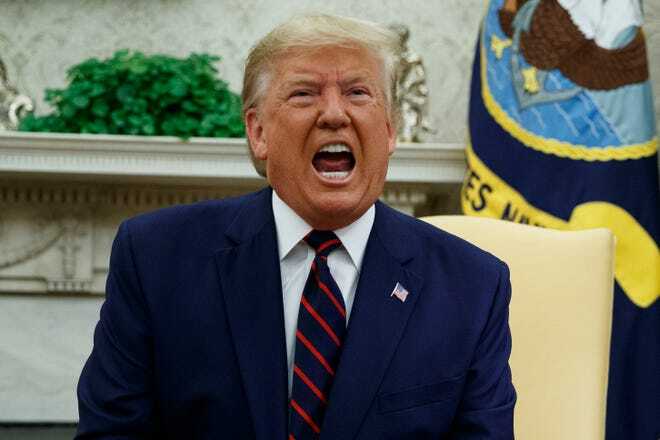
Image Source: Medium
In the latest episode of Trump’s trade policies—now bordering on trolling—he imposed, then partially walked back, 25% tariffs on nearly all imports from Canada and Mexico twice in the span of a few days.
Here’s how the tariff chaos unfolded:
March 4: Trump’s tariffs on Canadian and Mexican imports take effect, citing fentanyl trafficking as justification.
March 5: He temporarily exempts auto imports from said tariffs after meeting with executives from Ford, GM, and Stellantis.
March 6: He delays tariffs on Mexican goods. Later, he does the same for Canadian goods. The reprieve expires April 2.
March 6: He expands exemptions to cover a wider range of goods under the USMCA trade pact (including TVs, air conditioners, avocados, and beef).
Canada and Mexicos’s Response:
Canada welcomed the exemptions and paused its second wave of retaliatory tariffs, though potash8 tariffs were only reduced from 25% to 10%, and energy products remain partially affected.
Mexican President Claudia Sheinbaum had what she described as a “respectful” call with Trump and agreed to continue cooperation on fentanyl crackdowns.
Canadian Prime Minister Justin Trudeau, after what he described as a “colorful” call with Trump, warned that a full trade war is likely “for the foreseeable future.”

Holiday anyone? North Korea is back open for tourists, as long as those tourists enter via China and have “tour guides” with them at all times. Book yours here.
Trump paused foreign aid to Ukraine following the Oval Office fall out between Trump and Zelenskiy, without specifying how it could be reinstated.
Trump drafted an executive order to shut down the dept. of education, it was supposed to be signed on Thursday this week but nothing yet.
Kobe Bryant and Michael Jordan jerseys are set to sell for $10 million according to Sotheby’s.
James Harrison, the Man with the Golden Arm, Saved 2.4M Babies with rare blood passed away on Feb 17 according to his family this week. Read more about him here.
Goldman Sachs created a $300 million biodiversity-focused bond fund with aims for $500 million by 2030, at odds with the DEI and ESG roll-backs under Trump.

IPO: An Initial Public Offering, the first time a company lists its shares on a stock exchange (the public market). Also, called “going public”.
Oversubscribed: In the context of an IPO, when there are too many buyers and not enough shares. Can be resolved through a lottery system or other ways.
Margin Loan: A margin loan is a type of loan that investors take from their broker to buy securities (stocks, ETFs, etc.) using their existing portfolio as collateral. It allows traders to leverage their investments, meaning they can buy more assets than they could with their own cash.
Underwriter: A 3rd party that takes on another party’s risk (such as whether all shares will be sold or not) for a fee. Often the role taken on by an Investment Bank.
Private Equity Firms: Companies that acquire stakes in private companies or take a public company private, aiming to enhance their value through operational improvements, strategic restructuring, or financial engineering before selling them for a profit.
Leveraged Buyout: The acquisition of one company by another using a significant amount of borrowed money.
‘Make in America’ Mandate: A set of policies aimed at ensuring the U.S. prioritizes purchasing goods and services produced domestically, whilst also reducing reliance on foreign-made products and strengthening domestic supply chains.
Potash: A catch-all term for minerals rich in potassium. Potash is a key ingredient for agricultural fertilizer and is abundant in Canada.

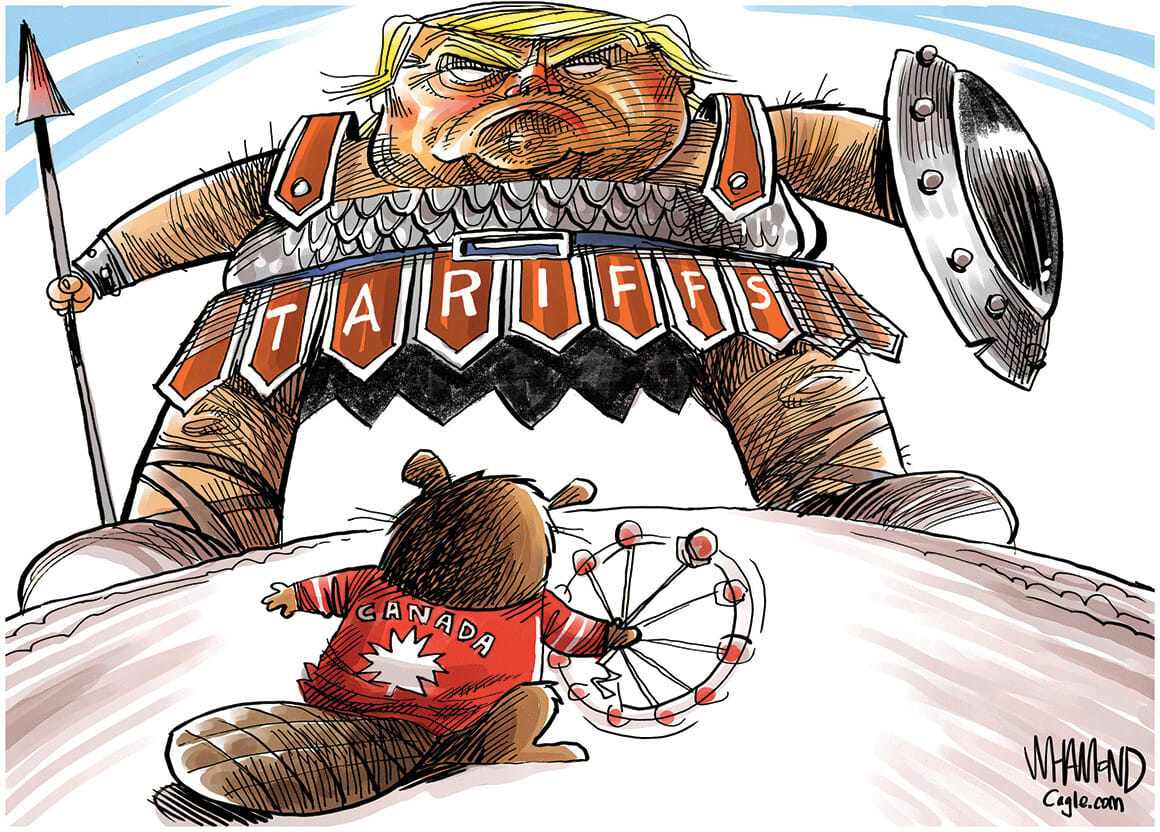
“Trump v Canada”, courtesy of Dave Whammond, Caglecartoons
###Cartoon does not reflect the opinions of the TWC crew, we just thought it was funny###
DISCLAIMER: This newsletter is for educational purposes only, and is not intended as financial advice, investment guidance, or a solicitation to buy or sell any assets. While we strive for accuracy, we cannot guarantee all information is error-free. Always exercise caution and conduct your own research before making financial decisions.
